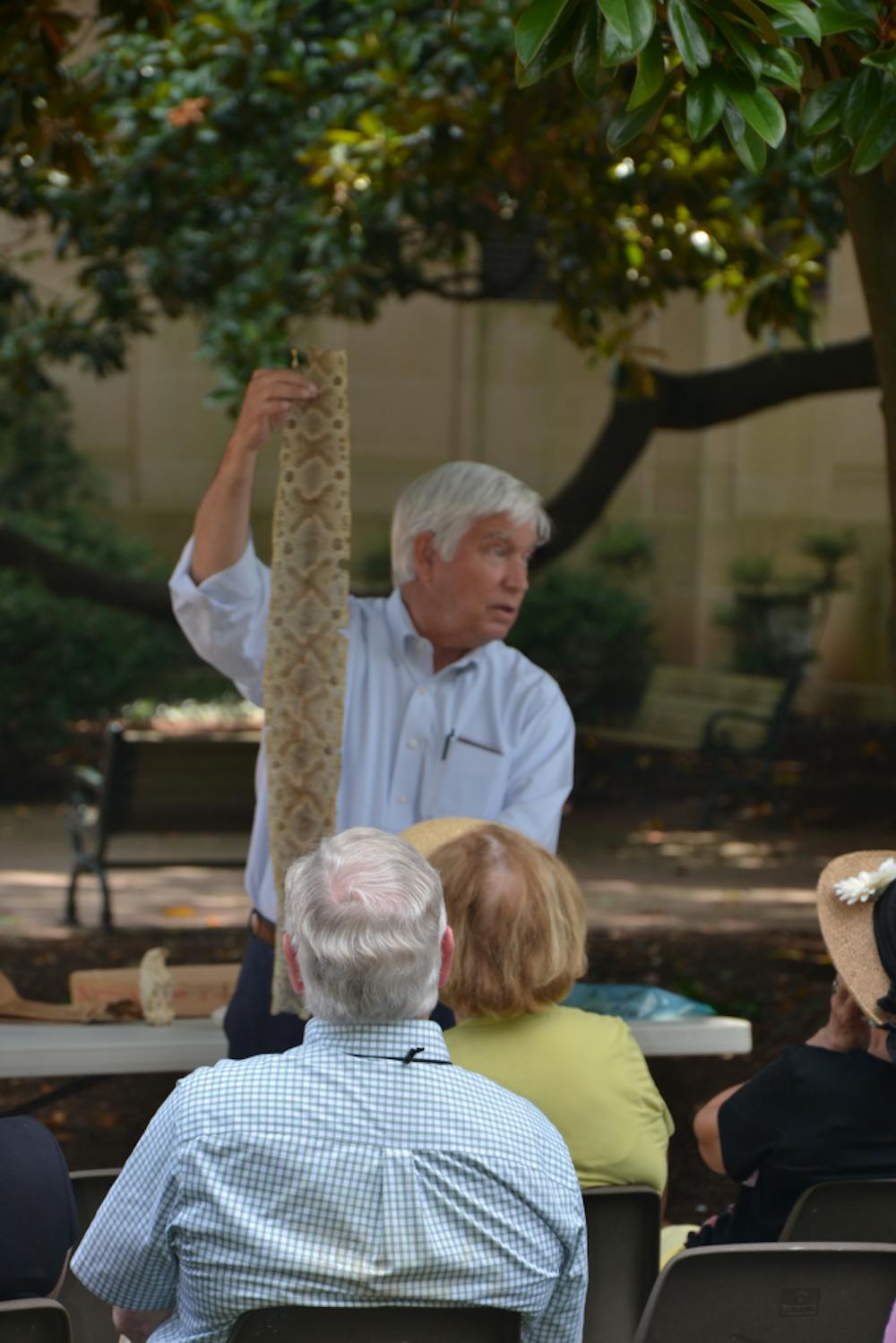Former ETV host focuses on predator, prey relationship
USC’s Resident naturalist Rudy Mancke hosted his semi-annual environmental talk “The Nature of Things” on the Horseshoe Tuesday in front of the steps of the McKissick Museum.
Chairs were set up on the lawn and people took their seats in the cool shade provided by the leaves of one of the trees on the Horseshoe. They settled in with snacks that they brought and drinks that were provided by McKissick staff for the former South Carolina Educational Television host’s seminally popular talk.
Mancke focused on the predator prey relationship of the environment in this installment.
“Nature is a wonderful system,” he said. “There is no good, bad, right, or wrong. It’s just the way it is.”
The talk, peppered with humor, had the audience hanging on to every word. Mancke, who hosted “NatureScene” for more than 20 years, discussed snakes native to South Carolina, trees, birds and shells. To the audience’s delight and, for some, hesitation, he passed around each of the items he discussed.
“A fear is a fear,” he said, chuckling as he passed around a snake’s shed skin and some guests recoiled. “You don’t have to hold the snake skin if you don’t want to.”
One audience member brought in a snake for Mancke to discuss. Mancke used this snake to illustrate the differences between poisonous snakes and harmless ones, as well as to stress the importance of exercising caution around unknown snakes.
“Copperheads are poisonous and native to South Carolina,” Mancke said. “If you get bit by a copperhead, it won’t kill you but it’ll definitely ruin your life for the next six weeks, so it’s important to be careful.”
Though it started to rain, ending the talk a few minutes early, Mancke stuck around and encouraged any remaining audience members to ask him questions.
While he was seeking shelter from the rain under the tree, Mancke said he has a lot of freedom as USC’s resident naturalist.
“Being allowed to do what I do is the best part of my job,” he said. “I’ve been doing this all my life. Now I’m teaching and getting paid for what I love to do.”.
Mancke said he stresses that aspect of a potential career to students in the Natural History of South Carolina, which he teaches as an adjunct professor, though he officially retired in 2008.
“I always tell my students that if you can find a job that you enjoy then happiness comes with the territory,” Mancke said.
Mancke, who enjoys speaking to an audience, was pleased with the turnout.
“I feel like I’m making a difference,” he said. “I’m doing my part and sharing what I know.”

